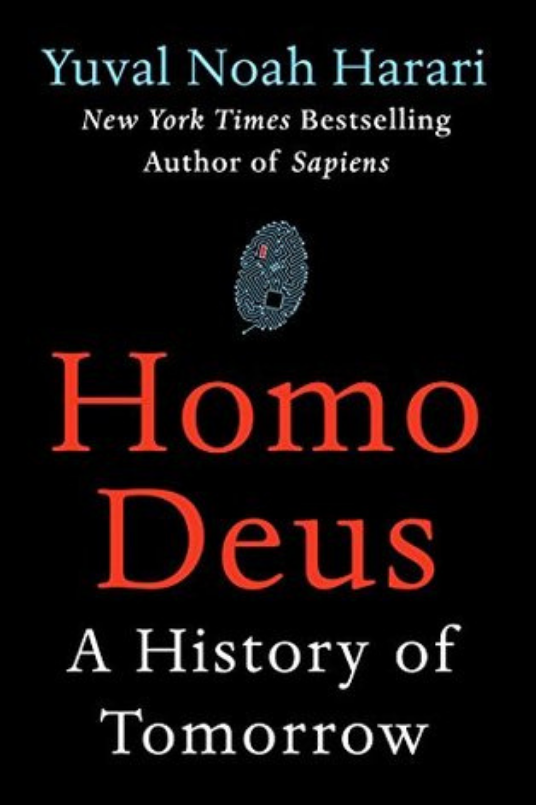This month was particularly difficult, as I read several great books. Yet, I picked this book because it stretches your mind and makes you think about possibilities and ideas that you wouldn’t have considered if you did not read the book.
If you’ve read Sapiens, then it’s a no-brainer for you to read this book. If you haven’t read Sapiens and then read this book as well.
You will learn about the past, present, and future of humankind.
Flow: 4/5
Actionability: 4/5
Mindset: 5/5
Some of My Highlights:
“Famine, plague and war were always at the top of the list.”
“Most people rarely think about it, but in the last few decades we have managed to rein in famine, plague, and war.”
“For the first time in history, more people die today from eating too much than from eating too little; more people die from old age than from infectious diseases; and more people commit suicide than are killed by soldiers, terrorists and criminals combined.”
“When severe drought hit ancient Egypt or medieval India, it was not uncommon that 5 or 10 per cent of the population perished.”
“But how does it feel when you haven’t eaten for days on end and you have no clue where to get the next morsel of food? Most people today have never experienced this excruciating torment.”
“Half of humankind is expected to be overweight by 2030. In 2010 famine and malnutrition combined killed about 1 million people, whereas obesity killed 3 million.”
“Incidentally cancer and heart disease are of course not new illnesses – they go back to antiquity. In previous eras, however, relatively few people lived long enough to die from them.”
“In contrast, 800,000 committed suicide, and 1.5 million died of diabetes. Sugar is now more dangerous than gunpowder.”
“However, terrorism is a strategy of weakness adopted by those who lack access to real power.”
“Terrorists usually don’t have the strength to defeat an army, occupy a country or destroy entire cities.”
“By provoking their enemies to overreact. In essence, terrorism is a show.”
“…we will now aim to overcome old age and even death itself… we will now aim to make them positively happy… we will now aim to upgrade humans into gods, and turn Homo sapiens into Homo Deus.”
“Schools were founded to produce skillful and obedient citizens who would serve the nation loyally.”
“The glass ceiling of happiness is held in place by two stout pillars, one psychological, the other biological.”
“On the biological level, both our expectations and our happiness are determined by our biochemistry rather by our economic, social or political situation.”
“The rats pressed the pedal again and again, until they collapsed from hunger and exhaustion.”
“The original aim had been to treat attention disorders, but today completely healthy kids take such medications to improve their performance and live up to the growing expectations of teachers and parents.”
“As the biochemical pursuit of happiness accelerates, so it will reshape politics, society and economics, and it will become ever harder to bring it under control.”
“The Buddha’s suggestion was to reduce our craving for pleasant sensations, and now allow them to control our lives.”
“The upgrading of humans into gods may follow any of these paths: biological engineering, cyborg engineering and the engineering of non-organic beings.”
“…mammals can’t live on food alone. They need emotional bonds too.”
“According to a Gallup survey, only 15 per cent of Americans think that Homo sapiens evolved through natural selection alone, free of all divine intervention; 32 per cent maintain that humans may have evolved from earlier life forms in a process lasting millions of years, but God orchestrated this entire show; 46 per cent believe that God created humans in their current form sometime during the last 10,000 years, just as the Bible says.”
“One of the wonderful things about science is that when scientists don’t know something, they can try out all kinds of theories and conjunctures, but in the end they can just admit their ignorance.”
“Most studies cite tool production and intelligence as particularly important for the ascent of humankind.”
“Research indicates that Sapiens just can’t have intimate relations (whether hostile or amorous) with more than 150 individuals. Whatever enables humans to organize mass-cooperation networks, it isn’t intimate relations.”
